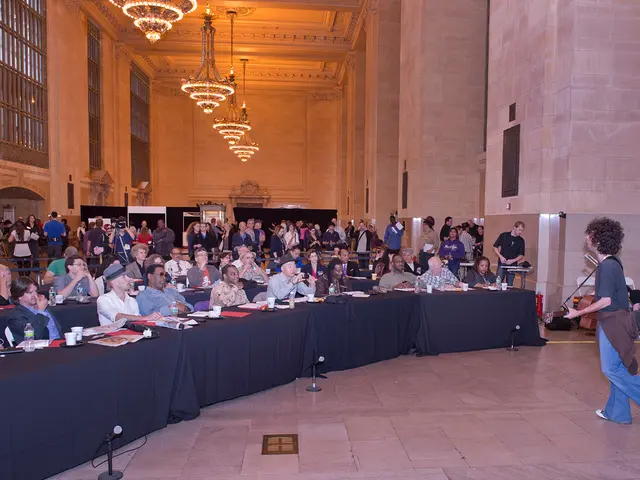Obstacle encountered by writer Pavel Tigrid anew
The Stolperstein project, an initiative by German artist Gunter Demnig, recently laid a commemorative stone in honour of Pavel Tigrid, a prominent figure in German-Czech relations. Tigrid, born Pavel Schoenfeld, lived in front of the house where he resided as a student before his first exile.
Tigrid's dedication to reconciliation between Germans and Czechs began during his exile, which spanned from 1939 to 1990. He first fled to England in 1939 and again after World War II. In 1948, he was forced into exile a second time due to the communist takeover in Czechoslovakia.
During his exile, Tigrid edited the influential exile magazine 'Svedectvi' (Testimony) first in New York and then in Paris. This magazine, which was smuggled into Czechoslovakia, played a significant role in keeping the Czechoslovak resistance informed about the outside world.
From 1951 to 1952, Tigrid headed the Czech Redaction of Radio Free Europe (RFE) in Munich. His work continued to contribute to bridging the gap between Germans and Czechs during this tumultuous period.
Following the democratic revolution of 1989, Tigrid returned to the Czech Republic and served as an advisor to President Vaclav Havel on German-Czech relations. He also served as the Minister of Culture in the Czech Republic from 1994 to 1996.
Tigrid's contributions to reconciliation were significant and lasting. Tomas Kafka, a diplomat and former Czech ambassador to Germany, stated that Tigrid taught them to express themselves and listen to others. He is considered one of the founding fathers of the German-Czech Forum for Dialogue.
The initiative for the Stolperstein laying for Tigrid came from the German-Czech Future Fund. His children, Gregory, Deborah, and Katerina, travelled from France to attend the ceremony. The Stolperstein laying was done in honour of Tigrid's contributions.
The Stolperstein, a small, brass-covered stone, is a symbol of resistance and commemoration. It is placed in the pavement at the last freely chosen residence of victims of the Nazi regime, including those who were murdered, deported, or forced into exile. The Stolperstein for Tigrid is a testament to his lifelong commitment to reconciliation and his enduring impact on German-Czech relations.





